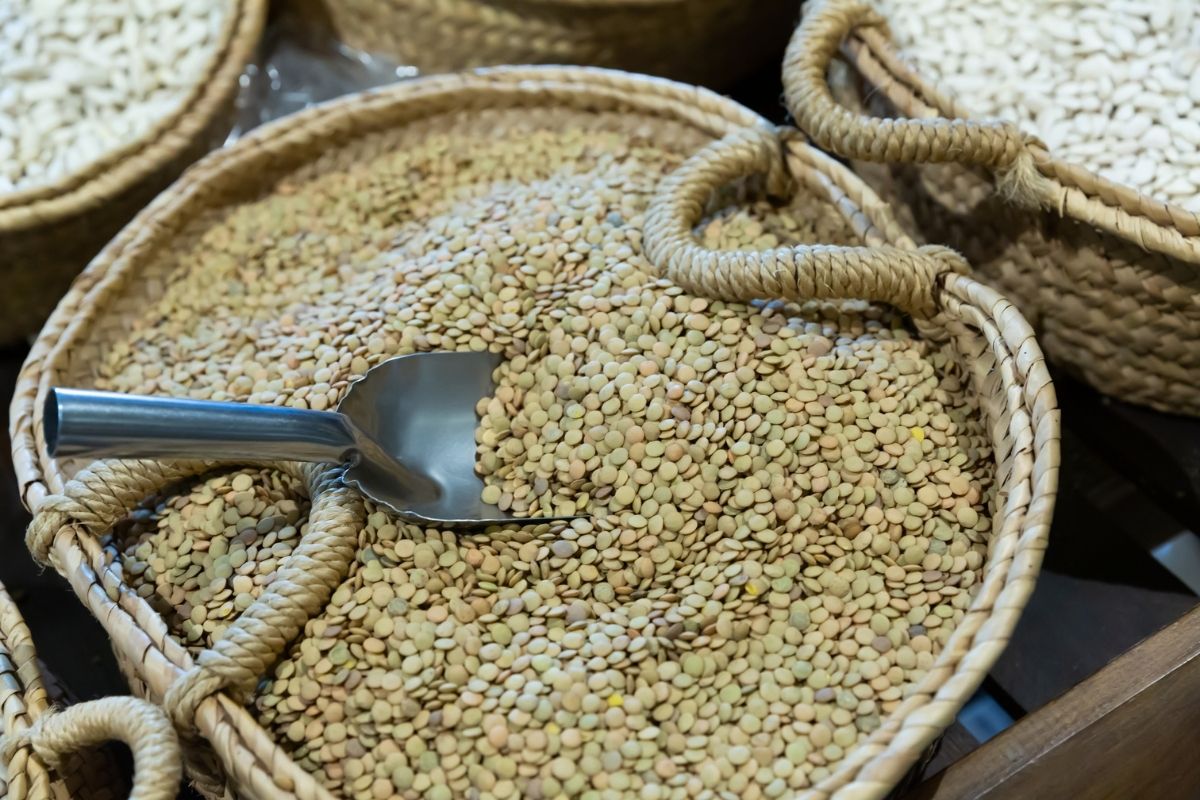The increasing risk of losing lentil crops to virus and other diseases is a devastating prospect for smallholder farmers in Ethiopia.
The University of Western Australia is leading a new five-year Australian Centre for International Agricultural Research (ACIAR) project that will address the biotic stresses – viruses, foliar and soil-borne diseases – that threaten Ethiopian lentil crops.
Project leader Professor Martin Barbetti from the UWA School of Agriculture and Environment and The UWA Institute of Agriculture said lentils were an important part of the Ethiopian diet and a high-value cash crop with great cultural importance.
 Image: A basket of dried lentils in a market. Credit - Getty
Image: A basket of dried lentils in a market. Credit - Getty
“Lentils are one of the foundational legume rotation crops for more than 600,000 households in the mid-highlands of Ethiopia,” Professor Barbetti said.
“In some areas, they contribute 50 to 100 per cent of the cash earned by smallholder growers, enabling them to purchase necessary fungicides and fertilisers, pay children’s school fees, and buy other less expensive food legumes.
“Additionally, lentil straw is a highly valued animal feed and can be sold for additional income.”
Professor Barbetti said disease outbreaks in Ethiopian crops were becoming more frequent and concerning due to climate changes.
“Traditionally, lentils were sown at the end of the rainy season to avoid severe epidemics of rust and root rot,” he explained.
“However, changing seasonal conditions have had a disastrous effect on lentil productivity and local farmer incomes.
“More frequent drought periods have fostered major virus disease outbreaks and untimely rainfall in November has favoured major soilborne disease and rust epidemics.”
The research team includes members of the Ethiopian Institute for Agricultural Research, Ethiopian Regional Agricultural Research Institutes, International Center for Agricultural Research in the Dry Areas (ICARDA), and New South Wales Department of Primary Industry.
They will work with Ethiopian smallholder lentil growers to maintain and improve their current lentil cropping practices, cereal crops in rotation, and livelihoods.
"Lentils are one of the foundational legume rotation crops for more than 600,000 households in the mid-highlands of Ethiopia."
Professor Martin Barbetti
Professor Barbetti said ICARDA would provide lentil germplasm with high resistance to target diseases.
“Together with farmers, we will co-design new farming practices that consider crop protection, genetics, agronomy, livestock nutrition and farming system analysis,” he said.
“Critical to this will be the adoption of the new practices for the management of virus, soilborne and foliar diseases as a precursor to reducing the risk of lentil crop failure and increasing productivity and profitability of the farming system.”
In recent years, lentil has become an important pulse crop in southern Australia.
Australia currently produces about 300,000 tonnes of lentils annually, contributing to approximately 10 per cent of global trade.
This project will enhance the overall capacity of the Australian lentil industry to address current and future disease issues.
